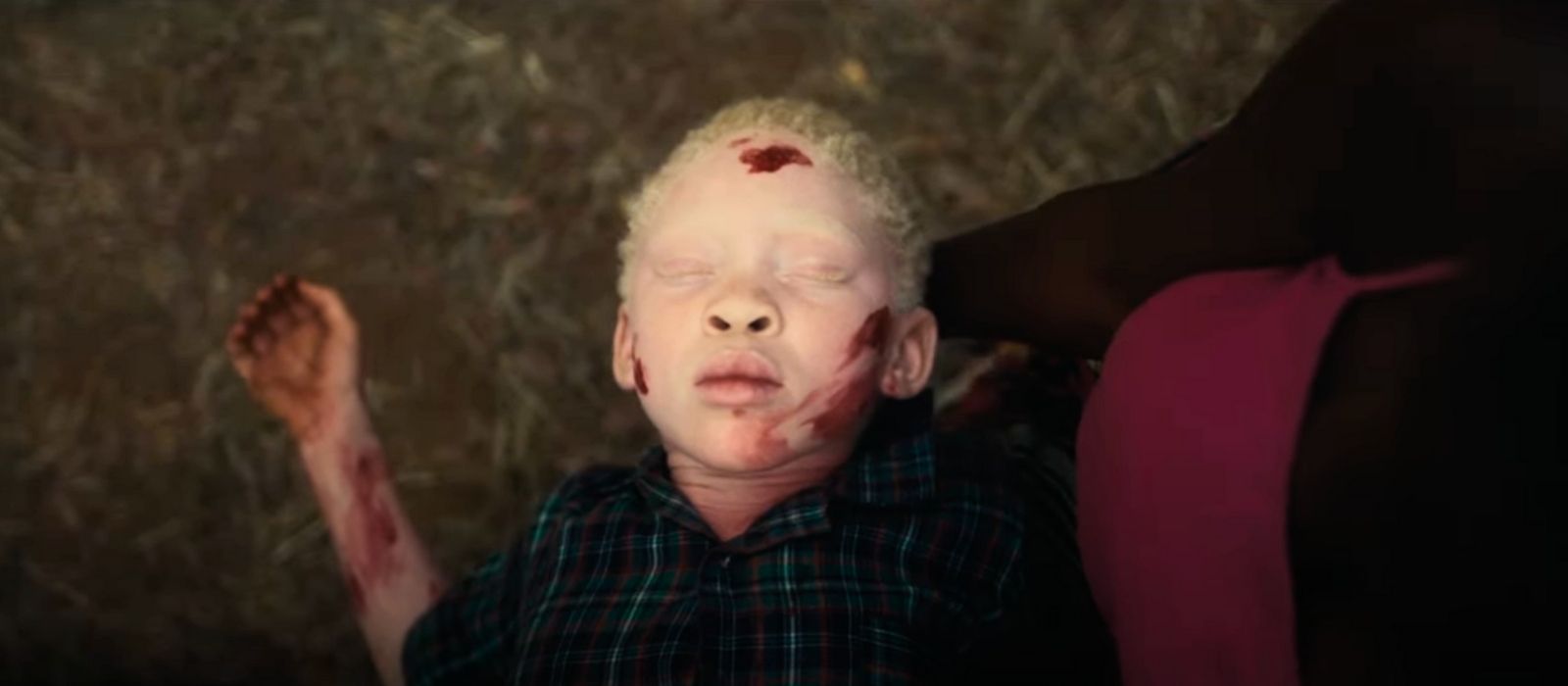
REVIEW: Zambian film ‘CAN YOU SEE US’ focuses on hardships faced by boy with albinism
A 2022 film, ‘Can You See Us’ has been currently trending on Netflix because of its uniqueness in highlighting the plight of a person with albinism in Zambia. The film is based on the true story of a boy who becomes a successful musician despite obstacles caused by his genetic condition.
The film was directed by Kenny Mumba as well as written by Andrew Thompson and Lawrence Thompson. ‘Can You See Us’ is loosely based on the life of John Chiti, a singer-songwriter born with albinism.
Synopsis is about a boy whose father rejected him at birth because he was born with albinism and navigates a childhood of tragedy, persecution, teasing and bullying yet remains cautiously optimistic. This makes it an actual heart-melting drama with some real grit and toughness at its core.
The film opens with a scene of a man who is so invested in his family that he is ready to sacrifice anything and he stands up for his wife no matter what. That is the character type of Kennedy we are open to, a kind family man who loves his wife dearly. But his depiction does not take long to change from being good to bad. It only took his wife to give birth to an albino child, and there, everything changed. Kennedy, who could run to heaven and back for his wife, detests his wife, Chama, because she gave birth to a Mwabi (a ghost), as Joseph, the baby, would later be rebuked.
Can You See Us? does not take long to expose us to what it means to live as an albino in society. This is flawless as an introduction to a film about stereotypes or shame, stamping the injustice in the faces of the wrongdoers. The film begins with a scene of birth, which shows where the injustice begins. People living with albinism do not grow into societal hate; they are born into it.
Unlike Joseph’s biological father, Martin the taxi driver adopts him like his own child, but many people wonder if he is being cared for out of ordinary love or pity because maybe Martin doesn’t want to fall into the category of people who detest albinism. Would he have reacted the same if Joseph was his biological child? This is one of Joseph’s mother fears because people and emotions change, like Kennedy.
Life sometimes is so unfair to the extent that baby Joseph’s woes don’t end in childhood but he loses both his parents at the age of ten, and then the question of who would be responsible for him creeps in. He had a favourite aunt but surprisingly she couldn’t take this responsibility; she acts like she cares, but when he needs her the most, she pretends like she still cares by refusing to take responsibility for him.
However, relatives had to take him back to his cruel father, Kennedy. It’s true that a person’s character does not change and we see it through Kennedy when he takes custody of Joseph, pretending to care, he still beats him because of his current wife who also disowned Joseph. That tells us the kind of man he is – a father and husband who cares more about what people think of him than what his child thinks of him.
Fortunate enough, Joseph discovered a phenomenal gift for music with the help of a mad man and he became a huge musician.
Today, John Chiti (Joseph) is a global star – with five albums released and more to come. He is a spokesman and activist for albino rights in Africa and a father of two children.
‘Can You See Us’ is a great and well-told story, despite being the first Zambian feature film on Netflix, it is worth a watch if you haven’t watched it.


